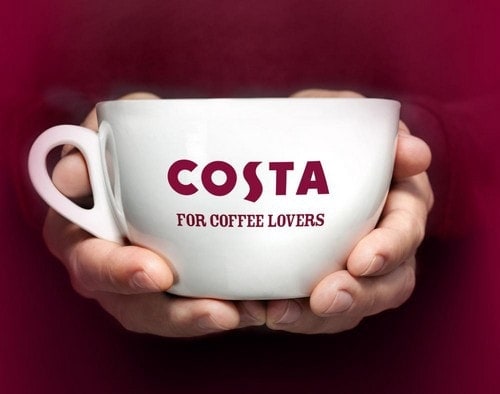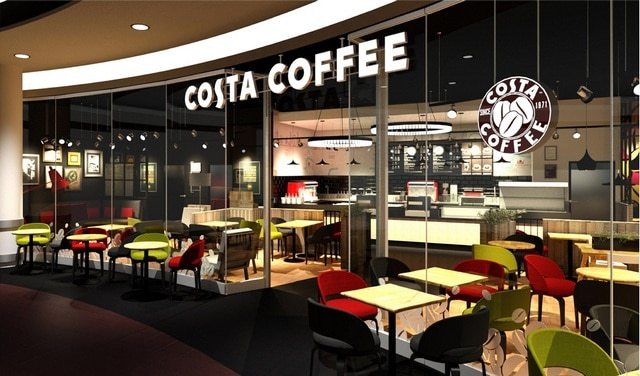Founded in 1971 by the Italian brothers Costa Coffee has emerged as a leading coffee chain in the world with 3000+ coffee shops and 4200+ Costa express self-service units globally. Costa coffee has large product portfolio in the beverages segment which is helping the company to compete with the peer companies.
Table of Contents
Segmentation, targeting, positioning in the Marketing strategy of Costa Coffee –
Costa coffee uses a mix of geographic and demographic segmentation strategy to target the customer and satisfy their needs.
Selective targeting strategy is used by the Costa coffee as being present in 29 nations which are geographically separated, following selective strategy is helping the company in catering to the needs of the customers and introducing new products accordingly.
It has positioned itself on the product basis, where it ensures that quality wise every cup of coffee leaves a lasting impression on the customer.
Did you know?
In 2019, Costa Coffee was acquired by The Coca-Cola Company for $4.9 billion, marking Coca-Cola’s significant entry into the global coffee market. This strategic move has enabled Costa Coffee to leverage Coca-Cola’s vast distribution network for accelerated global expansion. (Source: The Coca-Cola Company, 2019)
As of 2021, Costa Coffee operates over 3,880 coffee shops across 32 countries and has installed more than 10,000 Costa Express machines worldwide, solidifying its position as one of the largest coffeehouse chains globally. (Source: Costa Coffee Company Reports, 2021)
Marketing mix – Here is the Marketing mix of Costa Coffee.
Mission- “To save the world from mediocre coffee”
Vision- “Not Available”
Tagline-“I was made for loving you”
Competitive advantage in the Marketing strategy of Costa Coffee –
As a part of its customer well-being process, it sources all its raw materials like coffee beans, tea leaves and many others from Rainforest Alliance Certified farms.
Whitbread being the parent company of Costa Coffee is already present in different lines business in the hospitality industry. Whitbread is financially strong having properties/infrastructure to support Costa coffee.
Limited presence in the developed or developing nations is helping the company to remain focused on what they have and control its operational cost thereby increasing the profit.
BCG Matrix in the Marketing strategy of Costa Coffee –
Coffee in its product portfolio is what it is known for and that’s why it is a star in the BCG matrix.
Tea and other Beverages of Costa Coffee are the question mark in the BCG matrix.
Distribution strategy in the Marketing strategy of Costa Coffee –
Costa Coffee has more than 3000 outlets and 4200 Costa Express outlets spread across 29 countries globally. It works with coffee-growing communities around the world to source high-quality coffee beans.
Brand equity in the Marketing strategy of Costa Coffee –
Whether it is a digital platform or social platform, Costa Coffee has the strong presence in the media which is helping the company in creating awareness and thereby increasing its sales. It is involved in CSR activities and has set up Costa foundation to get associated with coffee-growing communities around the world.
Competitive analysis in the Marketing strategy of Costa Coffee –
Companies in this industry have to face the entry and exit barriers as infrastructure and branding cost are involved in the setup of the company and if the business is unable to attract customers then it’s just the loss for the franchise owner. Moreover, the coffee culture is still new to the developing nations and in the developed nations there is a lot of competitions between the local, national, and international players. The average revenue per customer of Costa Coffee is much less than its competitors.
Market analysis in the Marketing strategy of Costa Coffee –
Coffee consumption in globally is growing at the rate of 2%. In India, the per capita consumption of coffee is around 85 grams while it is six kg in US Developing nations are the big potential for the companies in this industry.
Customer analyses in the Marketing strategy of Costa Coffee –
A customer of Costa coffee is millennial in the age group of 15-45 years who like to experience the innovative and blended beverages offered by Costa coffee.
Liked this post? Check out the complete series on Strategies

